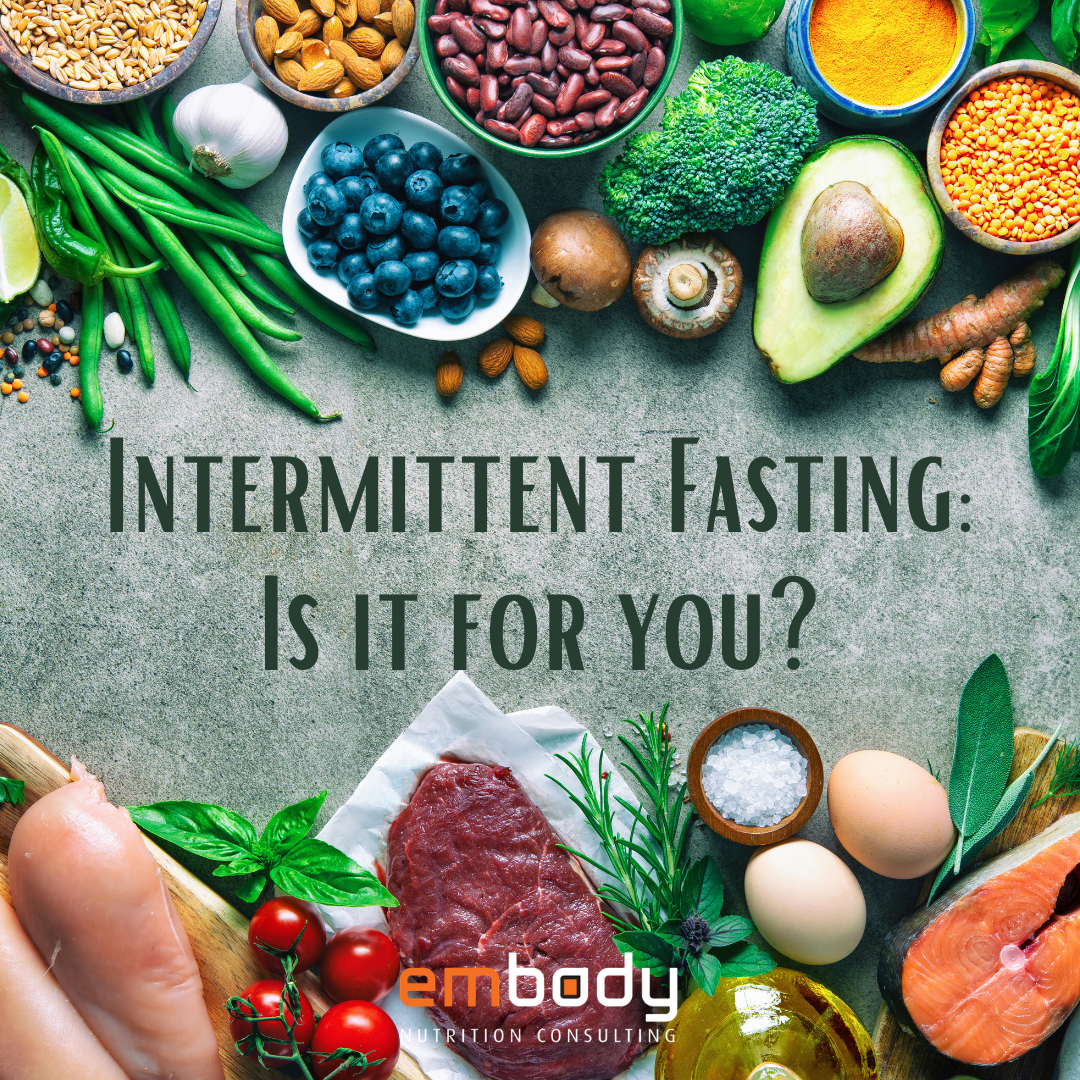Each month, we will be hosting a group coaching session within our Facebook Group and posting the notes here for your reference. You can check out the video here.
This month we are chatting about intermittent fasting because we get so many questions about this topic!
What is intermittent fasting?
Intermittent fasting is where you restrict the time period within a day that you allow yourself to eat. There are lots of different protocols that people follow – the most common one we see is the 16:8 (8 hour feeding window).
Just to be clear, everybody has a period of fasting every day – when we sleep! It has been shown that having a much shorter fasting window (eating into the night and early hours of the morning) can have negative effects on our health.
What are the benefits of intermittent fasting?
In terms of weight management, the biggest benefit is that it helps people to restrict their energy intake in an easy and structured way. So essentially, you will eat less food over the course of the day which will then results in weight loss (theoretically).
The most common feedback we here is that people find this an easy structure to follow, compared to other tools used to reduce energy intake (such as counting calories or eating smaller portions etc).
What are the problems with intermittent fasting?
The biggest issue that we see with clients is that they over restrict their energy intake (take out too much food) and then are so hungry at the end of the day that they end up eating more food than what they originally cut out. Some people report excessive snacking in the afternoon/night while others tell us that they just feel out of control with food.
This is a very common response to over restricting your energy intake (eating too little food). To combat this, you can either extend the fasting window or make sure you are compensating for at least SOME of the food that has been cut out of the diet.
Another issue that is often reported is lack of energy or just feeling cranky/moody when not eating. Food helps us to feel good, to be productive and for our brains to think clearly. If you don’t feel great when fasting, it might be time to look at another option for your food!
Bottom line
As with everything in nutrition, it is so individualised – what works for one person may not work for the next. You also don’t need to put yourself in a box when it comes to nutrition either – you can eat a number of different ways and this might change from day to day.
So if you love fasting and it works for you – great! If you find it difficult or can identify some issues that might be popping up as a result, it might be time to find another tool to use.

